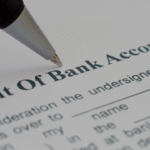Introduction
Swiss bank accounts are globally recognized for their privacy, stability, and elite financial services. If you’re a U.S. citizen or resident wondering how to open a Swiss bank account from USA, this guide explains everything you need to know in 2025—legally and efficiently.
Why Open a Swiss Bank Account?
- Asset Protection: Swiss banks are known for discretion and strong security laws.
- Currency Diversification: Hold funds in Swiss Francs (CHF) or Euros to hedge against USD volatility.
- Global Access: Ideal for international investors and business owners.
- Private Wealth Management: Personalized banking and investment services.
Can a U.S. Citizen Open a Swiss Bank Account?
Yes, but with stricter regulations. Post-FATCA (Foreign Account Tax Compliance Act), Swiss banks now report U.S. accounts to the IRS. You can still open one legally if you meet the bank’s due diligence and transparency requirements.
Steps: How to Open Swiss Bank Account from USA
1. Choose the Right Swiss Bank
Not all Swiss banks work with U.S. citizens. Look for FATCA-compliant institutions like:
- UBS
- Credit Suisse
- Pictet Group
- Julius Baer
2. Decide Account Type
- Personal or Joint Account
- Corporate Account (for business needs)
- Investment or Wealth Management Account
3. Contact the Bank
Reach out to the bank’s international/private banking division. Many offer remote onboarding for U.S. clients.
4. Submit Required Documents
You will typically need:
- Valid U.S. passport or ID
- Proof of address (utility bill or lease)
- Proof of income or source of funds
- U.S. tax identification number (TIN)
- Signed FATCA and CRS disclosure forms
5. Complete KYC & AML Checks
Swiss banks follow strict “Know Your Customer” and anti-money laundering (AML) laws. Expect questions about your income, wealth origin, and purpose of the account.
6. Fund the Account
Minimum deposits vary by bank—some require $100,000 or more for private accounts.
Is It Legal for Americans to Have Swiss Accounts?
Yes, it’s 100% legal as long as you report it to the IRS via:
- FBAR (FinCEN Form 114) – for accounts over $10,000
- FATCA (Form 8938) – depending on account value
Pro Tip: Work with a CPA or tax attorney experienced in foreign asset reporting.
Pros and Cons
Pros:
- Financial privacy and protection
- Strong Swiss financial infrastructure
- Multi-currency and global asset access
Cons:
- High minimum deposit
- Fees for account management
- Complex IRS reporting requirements
Alternatives to Consider
- Offshore banking in Singapore or Liechtenstein
- U.S. multi-currency business accounts
- International brokerage accounts with USD, CHF, and EUR options
Conclusion
Opening a Swiss bank account from the USA is entirely possible in 2025, provided you follow compliance rules. It’s best suited for high-net-worth individuals, global investors, or businesses needing asset diversification and elite financial services.
For global business support, U.S. LLC formation, and international banking strategies, visit FormLLC.us – your trusted cross-border business partner.




